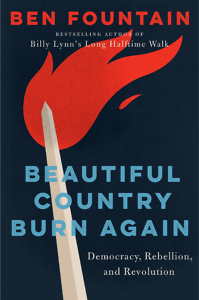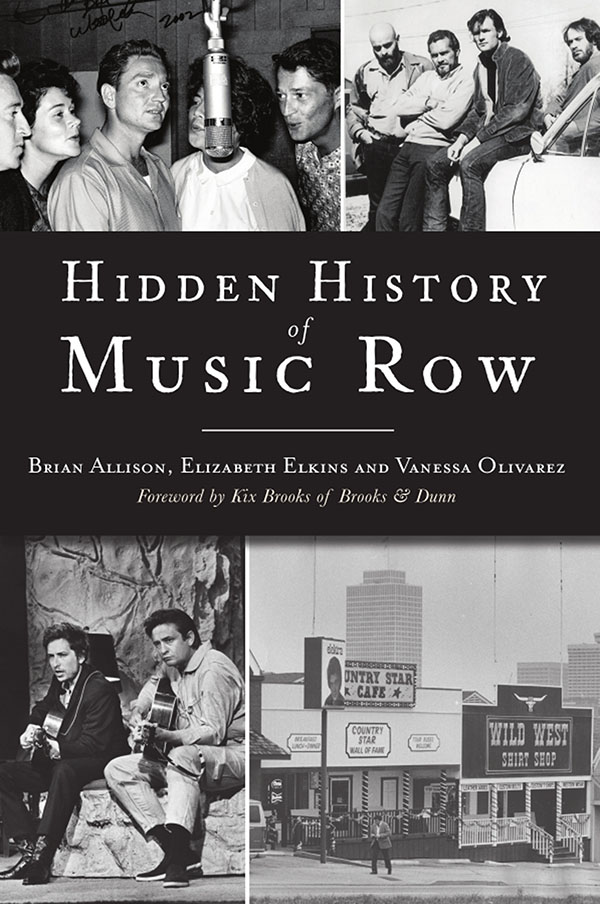How Close to Hell We’ll Have to Come
In Beautiful Country Burn Again, Ben Fountain dissects the election of 2016
“America’s collective memory is short,” writes Ben Fountain. In Beautiful Country Burn Again, he frames our current cultural moment within a long American tradition of willful ignorance, reminding readers that, however surreal and bizarre things seem to be right now, we have in fact been here before. In doing so, he has produced a work of breathtakingly detailed reportage, alarming insight, and prophetic significance.

Fountain’s extraordinary debut novel, Billy Lynn’s Long Halftime Walk—for my money, the best work of fiction about the Iraq War yet produced, and the one most likely to stand the test of time—managed to honor the sacrifices and the noble patriotism of the war’s veterans while simultaneously laying bare the absurdity of the war itself and the gobsmacking obliviousness of the majority of civilians to its moral and human costs. The book practically quakes with both love and rage: love for the ample goodness and decency of America as embodied by the novel’s title character; rage at the extent to which the country’s ideals have been perverted, commodified, and diminished in our time.
Love and rage are again on ample display in Beautiful Country Burn Again, along with Fountain’s virtuosic gifts as a literary stylist. The book resulted from a series of assignments he undertook for The Guardian to report on the 2016 election, but one gets the sense that for a fiction writer of Fountain’s social consciousness and global vision, the turn toward political reportage was perfectly timed. No work of fiction, earnest or satirical, could match the “you can’t make this up” character of American political life since the 2016 election.
“To call Donald Trump a hypocrite insults the scale of the thing,” Fountain writes. “A draft dodger enamored of the military; macho tough-talker and finicky germophobe; champion of U.S. manufacturing, purveyor of signature-label clothing made overseas; and a loud, proud patriot with a mysterious affinity for Vladimir Putin, one of America’s most dedicated foes.” And these are some of Fountain’s kinder words for the sitting president.
 But Fountain’s project here is not to remind us of what we already know. Nor does he overindulge in the Monday-morning-quarterbacking that dominated newsfeeds in the months after the election, as we all tried to make sense of how everyone (including, apparently, Trump himself) could have been so wrong about what was going to happen. Instead, Fountain places our historical moment in the context of earlier points in American history when the center did not hold.
But Fountain’s project here is not to remind us of what we already know. Nor does he overindulge in the Monday-morning-quarterbacking that dominated newsfeeds in the months after the election, as we all tried to make sense of how everyone (including, apparently, Trump himself) could have been so wrong about what was going to happen. Instead, Fountain places our historical moment in the context of earlier points in American history when the center did not hold.
“Twice in its history,” Fountain writes, “the United States has had to reinvent itself in order to survive as a plausibly genuine constitutional democracy.” The first was the Civil War; the second, the Great Depression. In each case, the country’s survival depended largely if not entirely on the brilliance and moral courage of its leadership: “Lincoln and Roosevelt had the vision and strength of will to lead the country out of two incarnations of hell,” Fountain writes. “One wonders how close to hell we’ll have to come in our own time before a similarly drastic act of reinvention is attempted.” He seems to be asking who among us is up to the task of saving us again from ourselves.
For Fountain, that visionary leader was not Hillary Clinton, as he makes amply clear in a withering account of Mrs. Clinton’s tone-deaf handling of questions surrounding her infamously lucrative speeches to Wall Street firms. “That’s what they offered!” she said when Anderson Cooper asked why she had accepted $255,000 for a single speech to Goldman Sachs. “[H]er physical recoil in that moment—the wide eyes, the quick step backward, the flailing hands—suggests nearly as much as her words the depth of her cluelessness,” he writes.
In Fountain’s view, Bill and Hillary Clinton’s particular brand of New Democrat neoliberalism is as much to blame as anything else for the rise of a widespread and reasonable suspicion that the American political system is broken beyond repair. This cynicism about both major political parties, he argues, explains both the improbable appeal of Bernie Sanders to millennials and the even more perplexing attractiveness of Trump to people with whom he could not conceivably have less in common. “In Trump,” Fountain writes, “some forty-six million Americans saw their chance to throw a wrench into the workings of the power machine, and they took it.”
What will result from this metaphorical middle finger to the status quo remains to be seen, though Fountain doesn’t seem too optimistic. Perhaps this is precisely why Beautiful Country Burn Again feels so urgent and essential.

Ed Tarkington’s debut novel, Only Love Can Break Your Heart, was published by Algonquin Books in January 2016. He lives in Nashville.


